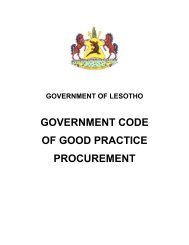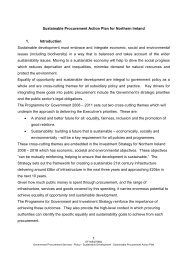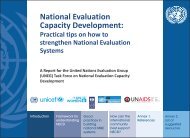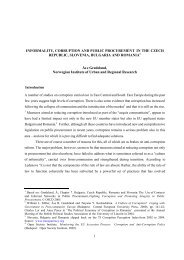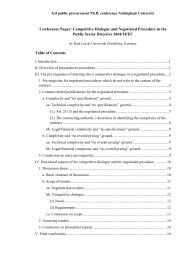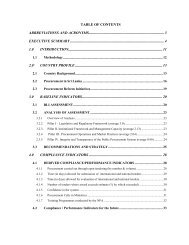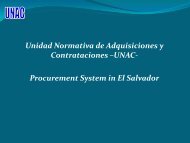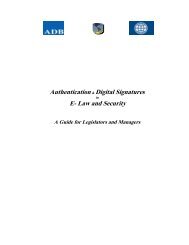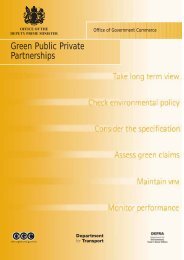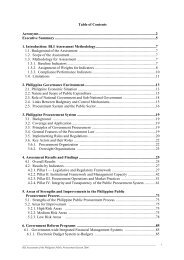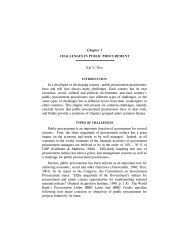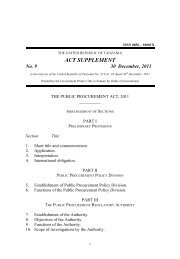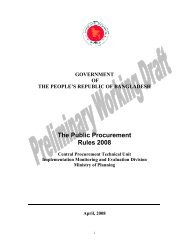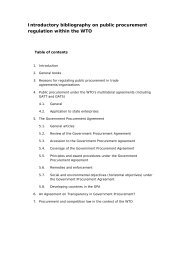Compendium of Country Examples and Lessons Learned from ...
Compendium of Country Examples and Lessons Learned from ...
Compendium of Country Examples and Lessons Learned from ...
Create successful ePaper yourself
Turn your PDF publications into a flip-book with our unique Google optimized e-Paper software.
D. Accountability <strong>and</strong> control8. Member countries should establish a clear chain <strong>of</strong> responsibility together with effectivecontrol mechanisms.Governments should establish a clear chain <strong>of</strong> responsibility by defining the authority for approval,based on an appropriate segregation <strong>of</strong> duties, as well as the obligations for internal reporting. Inaddition, the regularity <strong>and</strong> thoroughness <strong>of</strong> controls should be proportionate to the risks involved.Internal <strong>and</strong> external controls should complement each other <strong>and</strong> be carefully co-ordinated to avoidgaps or loopholes <strong>and</strong> ensure that the information produced by controls is as complete <strong>and</strong> useful aspossible.9. Member countries should h<strong>and</strong>le complaints <strong>from</strong> potential suppliers in a fair <strong>and</strong> timelymanner.Governments should ensure that potential suppliers have effective <strong>and</strong> timely access to review systems<strong>of</strong> procurement decisions <strong>and</strong> that these complaints are promptly resolved. To ensure an impartialreview, a body with enforcement capacity that is independent <strong>of</strong> the respective procuring entitiesshould rule on procurement decisions <strong>and</strong> provide adequate remedies. Governments should alsoconsider establishing alternative dispute settlement mechanisms to reduce the time for solvingcomplaints. Governments should analyse the use <strong>of</strong> review systems to identify patterns whereindividual firms could be using reviews to unduly interrupt or influence tenders. This analysis <strong>of</strong>review systems should also help identify opportunities for management improvement in key areas <strong>of</strong>public procurement.10. Member countries should empower civil society organisations, media <strong>and</strong> the wider publicto scrutinise public procurement.Governments should disclose public information on the key terms <strong>of</strong> major contracts to civil societyorganisations, media <strong>and</strong> the wider public. The reports <strong>of</strong> oversight institutions should also be madewidely available to enhance public scrutiny. To complement these traditional accountabilitymechanisms, governments should consider involving representatives <strong>from</strong> civil society organisations<strong>and</strong> the wider public in monitoring high-value or complex procurements that entail significant risks <strong>of</strong>mismanagement <strong>and</strong> corruption.COMPENDIUM OF COUNTRY EXAMPLES AND LESSONS LEARNED […] - OECD 2008 85



